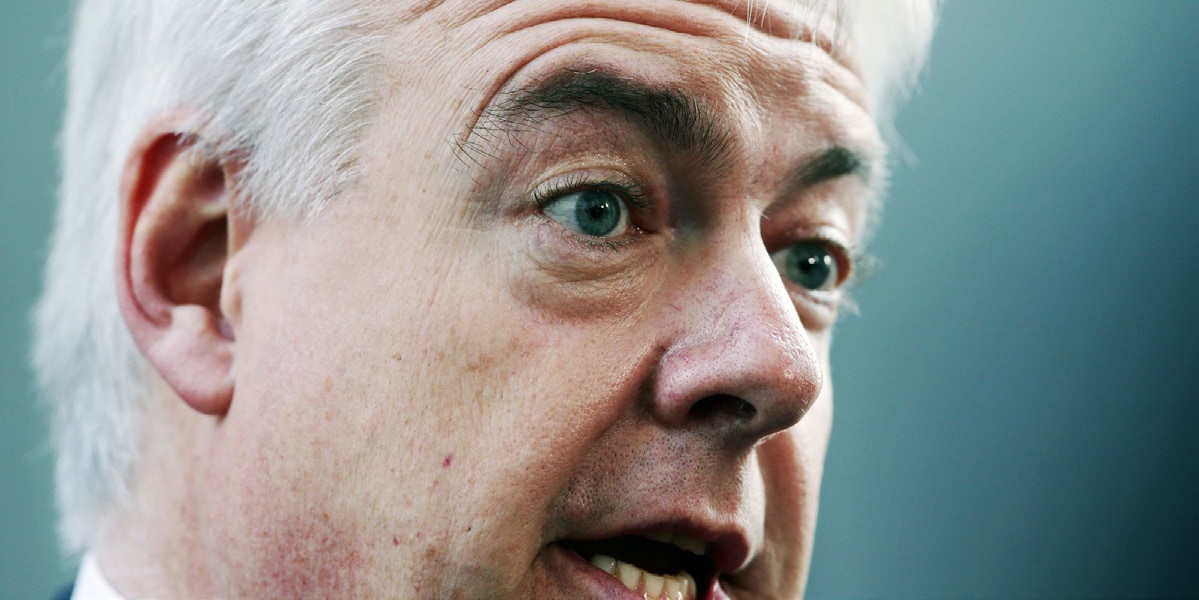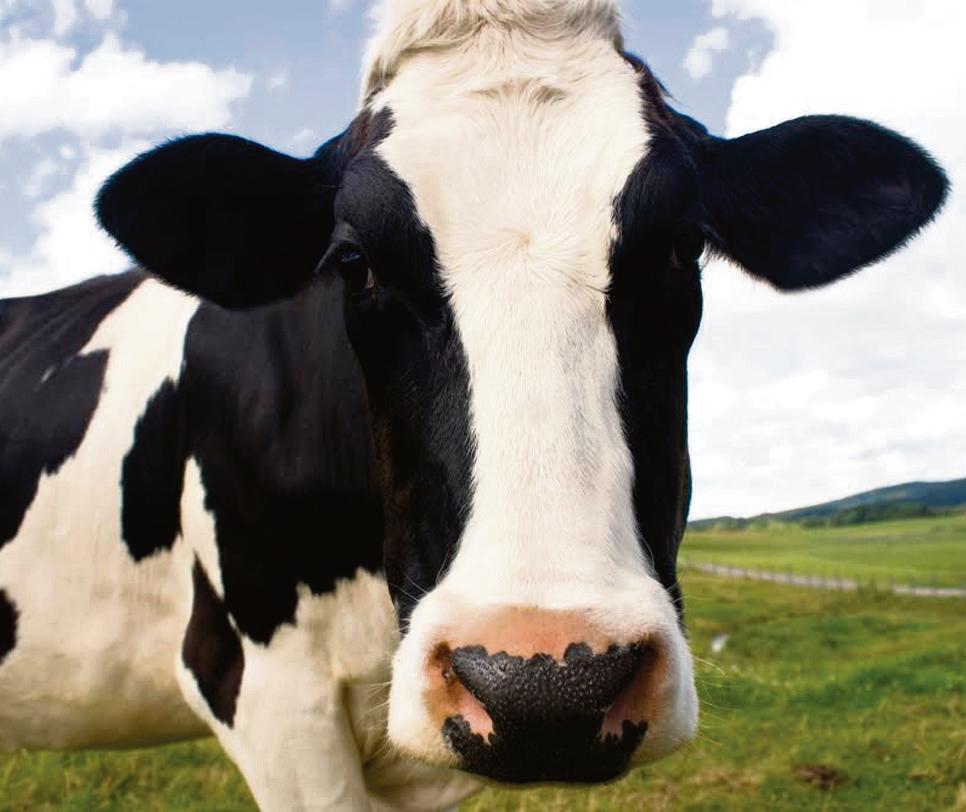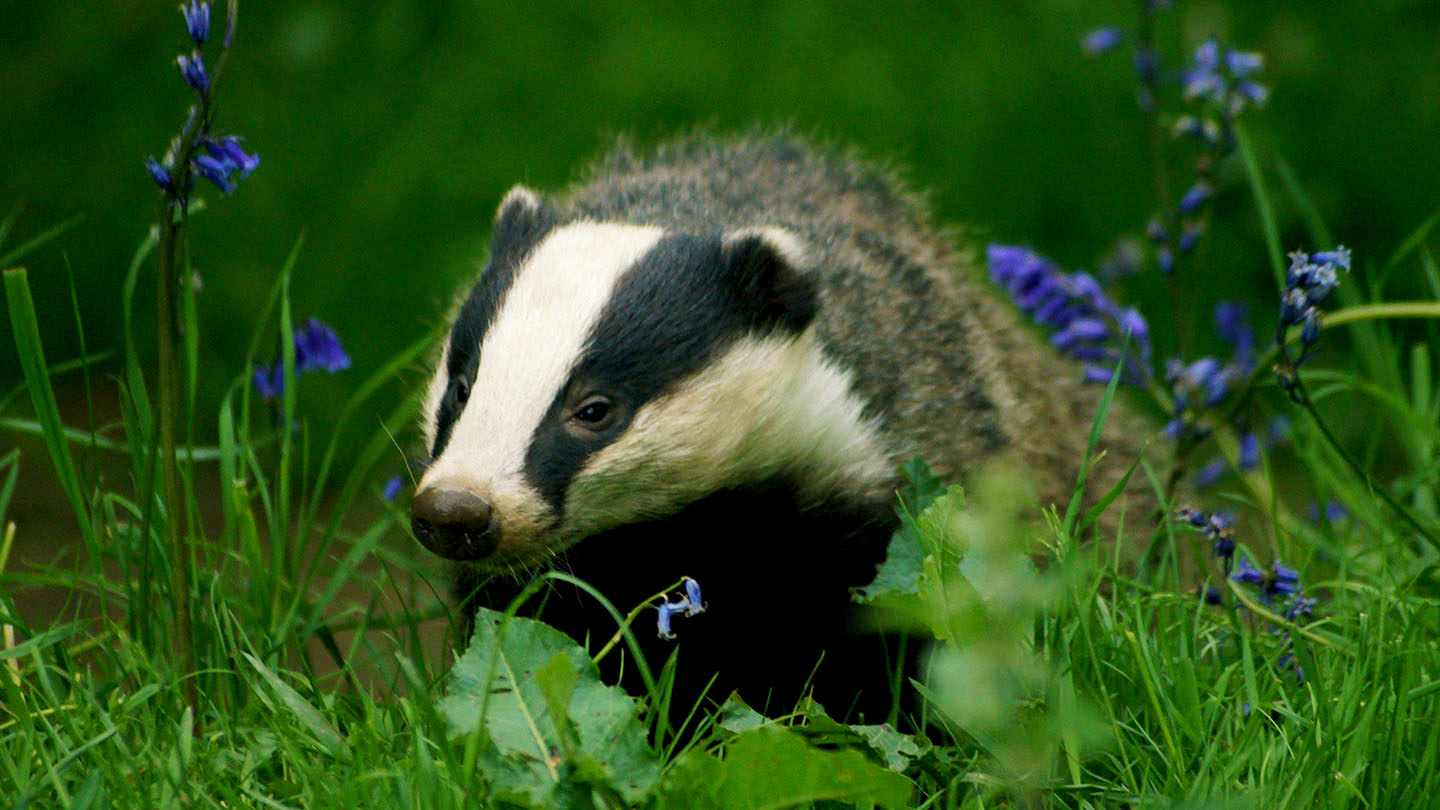Farming
Brexit to cost Welsh farmers


‘Wales must not lose a penny’: Carwyn Jones
£200M a year: that’s the support given to 16,000 Welsh farms through the Common Agricultural Policy.
In last Thursday’s (Jun 23) momentous vote to exit the EU, Welsh voters decided that Welsh farmers would need to find that level of subsidy from elsewhere. The question remains as to where that money will come from, especially with all those brand new hospitals promised by Leave campaigners waiting to be built.
NO RAPID EXIT
Expressing disappointment with the referendum result, Glyn Roberts from the FUW welcomed the Prime Minister’s decision to delay invoking Article 50 of the Treaty of Lisbon.
Mr Roberts said the timescale of an exit was crucial to such planning, and that exit over too short a period would have dire consequences for both the UK and the EU.
“There is a monumental amount of work to do in terms of changing domestic arrangements and legislation, including in terms of Welsh devolved legislation, not to mention unravelling us from the EU budget to which we were previously committed, negotiating trade deals and dealing with issues such as border controls. “Such issues will also require a huge amount of work at the EU level, and we do not believe a rapid exit over a couple of years would be in either the UK or the
EU’s interests.
“It is likely to leave everyone with the worst of all worlds,” he added.
The Union has called for early
meetings with the Welsh Government and is also engaged with UK Government to ensure that the voice of Welsh farming is heard during these challenging times.
“We have also reached out to other non-member states in order to better understand agricultural models in countries such as Norway and Switzerland, and these knowledge exchanges will ensure that the experience of other nations can benefit any plans being developed in Wales,” said Mr Roberts, who concluded: “Our members’ voices must be heard, so we will consult with them as widely as we can to ensure that Wales gets what it needs to ensure a sustainable agricultural future and stronger rural economies.”
IMPLICATIONS UNCLEAR
NFU Cymru President, Stephen James, said, “At the forefront of most farmers’ minds will be the twin questions of what level of access we will enjoy to the European markets and what level of support farmers in Wales might receive once the withdrawal process is complete. We must ensure we have the best possible access to Europe’s markets and an agricultural policy that guarantees parity of treatment with the rest of Europe. If farm businesses are to plan for the future then they need to know the answers to these questions sooner rather than later.
“Negotiating and concluding trade agreements with the European Union and the rest of the world for our exports now becomes vital. Wales is particularly reliant on export markets and we will be looking to the UK Government to
prioritise the negotiation of favourable trade agreements. Whilst doing so, I would stress that it is essential that decision makers do not undermine domestic agriculture by opening the UK market to goods which do not meet our own high standards of production.”
Reflecting on the timing of the end of CAP support, Mr James pointed out: “Once official notification is made, the two year window we have for exiting leaves little time to conclude our withdrawal from the EU, whilst simultaneously seeking to negotiate trade deals from scratch. We are urgently seeking a meeting with the Cabinet Secretary to discuss the implications for Welsh agriculture.”
MARKETS MUST BE MAINTAINED
Commenting on the result of the referendum to leave the European Union, the Chairman of Hybu Cig Cymru (HCC)
– Meat Promotion Wales – Dai Davies said: “Hybu Cig Cymru’s focus remains on securing the best deal for levy-payers, and a sustainable future for the Welsh red meat industry.
“The result will undoubtedly lead to a period of uncertainty; HCC has an important role to play in mitigating any instability and ensuring the maintenance of current trade.
“Our essential task in the long-term is securing the best trading deals for Wales
– maintaining our existing export markets in Europe, and continuing our work in developing new trading relationships further afield.
“The First Minister has this morning
outlined six priorities for Wales. HCC will play an active role in finding solutions to these key issues which are in the best interests of the red meat industry. These include the terms of access to the European single market, the future of participation in existing CAP and RDP programmes, and the future of PGI certification.”
WALES MUST NOT LOSE A PENNY
Responding to the Referendum, Welsh First Minister, Carwyn Jones, said: “The Welsh Government must play a full part in discussions about the timing and terms of UK withdrawal from the EU. Our participation is essential, not just for directly devolved issues, but for the whole range of issues affecting vital Welsh interests.
“It is vital that the United Kingdom negotiates to retain access to the 500 million customers in the Single Market. We should negotiate continued participation, on current terms, in major EU programmes like CAP and Structural Funds up until the end of 2020. This will facilitate continuity for citizens, communities, businesses and investors while arrangements are made for the longer term.
“Wales is a net beneficiary from the EU to the tune of hundreds of millions of pounds. There is now an overwhelming case for a major and immediate revision of the Barnett Formula taking into account needs arising from EU withdrawal and I call today for the promise made that Wales will not lose a penny to be guaranteed.”
AGRICULTURE VITAL TO WELSH ECONOMY
The concern about the financial
Consequences of the Leave vote is borne
Out by the fact that, before EU subsidies, the support offered to farmers by successive UK governments were not enough to compensate for the disadvantage Welsh agriculture experienced from its smaller average farm size.
According to NFU Cymru President
, Stephen James: “Agriculture is a significant contributor to the Welsh economy with 60,000 people employed either full or part-time on holdings in Wales. Welsh agriculture has a gross output of nearly £1.5bn and underpins a food supply chain worth £6bn annually, employing 230,000 people or 18% of our workforce. It is essential that this is not put at risk.”
Glyn Roberts, FUW President, said: “All the businesses that make the wheel of our rural economy go round have an important role to play in our daily lives and indeed how we all survive and make a living.
“We know that a lot of second and third sector businesses are already struggling as a result of the knock on impact of low agricultural incomes and farm gate prices, and the potential wider impact if there was to be a further downturn in farm incomes could be catastrophic.
“We must remember that agriculture is the powerhouse of the rural economy, and generates billions of pounds which benefit a host of industries including many not directly associated with agriculture.”
LABOUR MARKET CONCERNS
Currently, 65% of agricultural workers are non-UK EU citizens. In addition, approximately 80% of seasonal workers employed in agriculture are sourced from the EU, due to UK workers being reluctant to take on such short-term, uncertain
employment. Significant numbers of EU workers are also employed in leisure and tourism. This could result in labour shortages and/or price increases for the sector as it is forced to take on alternative, more expensive, labour.
Free movement of EU nationals across the EU will no longer apply to the UK, unless this arrangement continues as part of a renegotiated trading arrangement between the UK and the EU. A change to these rules would mean that the existing pool of labour for UK rural businesses will be significantly reduced.
Meurig Raymond, the Pembrokeshire farmer who heads the NFU reflected concerns about those issues, remarked following the vote: “During the Referendum we have repeatedly drawn attention to our sector’s need for access to non-UK labour, both seasonal and full-time. Outside the EU we will need a student agricultural workers scheme, which is open to students from around the world.
“We will be looking for guarantees that the support given to our farmers is equal to that given to farmers in the EU, who will still be our principal competitors.”
EARLY GUARANTEE NEEDED
The Tenant Farmers Association has also contacted the UK and Welsh governments in the wake of the referendum results. TFA Chief Executive, George Dunn, said, “Agricultural policy will be the main focus of activity for the TFA, and having already set out a potential draft policy for the situation within which we now find ourselves, we will be using that as a basis for beginning our discussions with the English and Welsh Governments to gain early traction to ensure that the farming community is not forgotten as we build new, domestic policies from the bottom up.”
In a statement on Friday morning (Jun 24) organic farming charity ‘ The Soil Association ‘ said it is ‘very disappointed’ by the vote, saying environmental conservation and protection will likely be much more difficult to achieve outside the EU. The Association statement adds: “UK wildlife, the environment and the organic farming sector have been major beneficiaries of EU membership, where the precautionary principle prevails in policy making. Thanks to EU policy, the UK has cleaned up its act as ‘the dirty man of Europe’ and now has cleaner beaches, rivers and better protection for wildlife, including our vital pollinators as a direct result of EU membership. It is vital that these gains are secured.”
The organisation has pledged to work with the government to develop new policy and solutions, saying: “Those communities who are most vulnerable such as those on low incomes and upland farmers need to be foremost in our minds as we consider what policies should be developed over the next couple of years.”
CLA Chief Executive Ross Murray said: “There are some urgent decisions for Ministers to make. These decisions are necessary to secure the immediate future of the rural economy. We need an early guarantee that, whatever happens with regard to the negotiations on the UK’s exit, the support that is currently provided to UK farmers and the wider economy through the EU Common Agricultural Policy (CAP) will continue unbroken and unchanged until at least the end of December 2020.
“As negotiations begin on trade relationships to succeed our position as a full member of the European Union, Ministers must have the needs of farming and other rural businesses at the front of their minds. The ambition must be a barrier and tariff-free relationship. Whatever happens, the UK Government must not allow a poor trade dynamic that leaves UK agriculture at a disadvantage.
“Discussions must begin as soon as practical on what will replace the support provided through the CAP. A dedicated UK Agriculture and Land Use Policy must be in place ready for the day we exit the European Union. This has to be a widely accepted policy that supports our farmers, helping them to be resilient to unpredictable markets, and providing them with a firm foundation to compete with EU and other farmers from across the world. It must also be a policy that fully supports the vital work of managing our land and wildlife, preserving our landscapes and supporting rural communities.”
FARM INCOMES UNDER THREAT
It is probable that the UK will now have to renegotiate terms of trade agreements previously concluded by the EU. To what extent and on what terms non-EU countries will be willing to establish trade agreements direct with the UK remains to be seen. Existing tariffs imposed on goods and commodities coming into the UK from outside the EU would be significantly reduced if default World Trade Organisation rules were applied without the UK adopting its own tariff regime. This could result in cheaper imports undercutting the UK’s primary producers.
The UK will certainly have to negotiate new trading terms with the European Single Market and the level of tariffs to be levied on goods imported into the EU from the UK could be significant for many in the agricultural sector. The EU currently levies significant tariffs on many food products coming into the single market, so this could have a negative effect on the sector unless the UK is able to negotiate beneficial terms.
On average, 55% of farmers’ incomes are currently received by direct subsidies via the CAP. No guarantees have been given about what, if anything, will replace this post-Brexit – although it is generally accepted that some form of alternative subsidy regime will be introduced. The fear is that the general public will balk at matching the expenditure of £3bn currently received from the EU each year, so farmers may find that their incomes are reduced. This could result in many going out of business. It is also probable that subsidies in the future will be more tied to environmental schemes and credentials.
The current uncertainty around use of glyphosate and neonicotinoids would arguably be removed as UK farmers are given the freedom to use products that membership of the EU might prevent. However, if the UK wishes to continue exporting to the EU single market, it may find itself restricted in its freedom to use these products as part of the terms of any trade agreement entered into.
If the withdrawal of EU funding reduces farm budgets and prices for domestic food products fall to compete with imports, returns for in hand farmers and landlords are likely to be hit.
During the campaign, Andrew RT Davies, the Welsh Conservative leader who backed Brexit, said there was a ‘solid guarantee that Welsh farmers would continue to receive at least as much in terms of support ‘. That cheque is, however, not Mr Davies’ to write; and the thing with ‘guarantees’ is that they often come with the sort of strings attached that render them effectively valueless.
employment. Significant numbers of EU workers are also employed in leisure and tourism. This could result in labour shortages and/or price increases for the sector as it is forced to take on alternative, more expensive, labour.
Free movement of EU nationals across the EU will no longer apply to the UK, unless this arrangement continues as part of a renegotiated trading arrangement between the UK and the EU. A change to these rules would mean that the existing pool of labour for UK rural businesses will be significantly reduced.
Meurig Raymond, the Pembrokeshire farmer who heads the NFU reflected concerns about those issues, remarked following the vote: “During the Referendum we have repeatedly drawn attention to our sector’s need for access to non-UK labour, both seasonal and full-time. Outside the EU we will need a student agricultural workers scheme, which is open to students from around the world.
“We will be looking for guarantees that the support given to our farmers is equal to that given to farmers in the EU, who will still be our principal competitors.”
EARLY GUARANTEE NEEDED
The Tenant Farmers Association has also contacted the UK and Welsh governments in the wake of the referendum results. TFA Chief Executive , George Dunn , said, “Agricultural policy will be the main focus of activity for the TFA , and having already set out a potential draft policy for the situation within which we now find ourselves, we will be using that as a basis for beginning our discussions with the English and Welsh Governments to gain early traction to ensure that the farming community is not forgotten as we build new, domestic policies from the bottom up.”
In a statement on Friday morning (Jun 24) organic farming charity ‘ The Soil Association ‘ said it is ‘very disappointed’ by the vote, saying environmental conservation and protection will likely be much more difficult to achieve outside the EU. The Association statement adds: “UK wildlife, the environment and the organic farming sector have been major beneficiaries of EU membership, where the precautionary principle prevails in policy making. Thanks to EU policy, the UK has cleaned up its act as ‘the dirty man of Europe’ and now has cleaner beaches, rivers and better protection for wildlife, including our vital pollinators as a direct result of EU membership. It is vital that these gains are secured.”
The organisation has pledged to work with the government to develop new policy and solutions, saying: “Those communities who are most vulnerable such as those on low incomes and upland farmers need to be foremost in our minds as we consider what policies should be developed over the next couple of years.”
CLA Chief Executive Ross Murray said: “There are some urgent decisions for Ministers to make. These decisions are necessary to secure the immediate future of the rural economy. We need an early guarantee that, whatever happens with regard to the negotiations on the UK’s exit, the support that is currently provided to UK farmers and the wider economy through the EU Common Agricultural Policy (CAP) will continue unbroken and unchanged until at least the end of December 2020.
“As negotiations begin on trade relationships to succeed our position as a full member of the European Union, Ministers must have the needs of farming and other rural businesses at the front of their minds. The ambition must be a barrier and tariff-free relationship. Whatever happens, the UK Government must not allow a poor trade dynamic that leaves UK agriculture at a disadvantage.
“Discussions must begin as soon as practical on what will replace the support provided through the CAP. A dedicated UK Agriculture and Land Use Policy must be in place ready for the day we exit the European Union. This has to be a widely accepted policy that supports our farmers, helping them to be resilient to unpredictable markets, and providing them with a firm foundation to compete with EU and other farmers from across the world. It must also be a policy that fully supports the vital work of managing our land and wildlife, preserving our landscapes and supporting rural communities.”
FARM INCOMES UNDER THREAT
It is probable that the UK will now have to renegotiate terms of trade agreements previously concluded by the EU. To what extent and on what terms non-EU countries will be willing to establish trade agreements direct with the UK remains to be seen. Existing tariffs imposed on goods and commodities coming into the UK from outside the EU would be significantly reduced if default World Trade Organisation rules were applied without the UK adopting its own tariff regime. This could result in cheaper imports undercutting the UK’s primary producers.
The UK will certainly have to negotiate new trading terms with the European Single Market and the level of tariffs to be levied on goods imported into the EU from the UK could be significant for many in the agricultural sector. The EU currently levies significant tariffs on many food products coming into the single market, so this could have a negative effect on the sector unless the UK is able to negotiate beneficial terms.
On average , 55% of farmers’ incomes are currently received by direct subsidies via the CAP. No guarantees have been given about what, if anything, will replace this post-Brexit – although it is generally accepted that some form of alternative subsidy regime will be introduced. The fear is that the general public will balk at matching the expenditure of £3bn currently received from the EU each year, so farmers may find that their incomes are reduced. This could result in many going out of business. It is also probable that subsidies in the future will be more tied to environmental schemes and credentials.
The current uncertainty around use of glyphosate and neonicotinoids would arguably be removed as UK farmers are given the freedom to use products that membership of the EU might prevent. However, if the UK wishes to continue exporting to the EU single market , it may find itself restricted in its freedom to use these products as part of the terms of any trade agreement entered into.
If the withdrawal of EU funding reduces farm budgets and prices for domestic food products fall to compete with imports, returns for in hand farmers and landlords are likely to be hit.
During the campaign, Andrew RT Davies, the Welsh Conservative leader who backed Brexit, said there was a ‘solid guarantee that Welsh farmers would continue to receive at least as much in terms of support ‘. That cheque is, however, not Mr Davies’ to write; and the thing with ‘guarantees’ is that they often come with the sort of strings attached that render them effectively valueless.
Farming
Welsh Conservatives warn climate plans could mean fewer livestock on Welsh farms

THE WELSH CONSERVATIVES have challenged the Welsh Government over climate change policies they say could lead to reductions in livestock numbers across Wales, raising concerns about the future of Welsh farming.
The row follows the Welsh Government’s decision, alongside Plaid Cymru and the Welsh Liberal Democrats, to support the UK Climate Change Committee’s Fourth Carbon Budget, which sets out the pathway towards Net Zero greenhouse gas emissions by 2050.
The Carbon Budget, produced by the independent Climate Change Committee (CCC), states that meeting Net Zero targets will require a reduction in agricultural emissions, including changes to land use and, in some scenarios, a reduction in livestock numbers.
During questioning in the Senedd, the Welsh Conservatives pressed the Deputy First Minister and Cabinet Secretary for Climate Change and Rural Affairs on whether the Welsh Government supports reducing livestock numbers as part of its climate strategy.
Speaking after the exchange, Welsh Conservative Shadow Cabinet Secretary for Rural Affairs, Samuel Kurtz MS, said the Welsh Government could not distance itself from the implications of the policy it had backed.
Mr Kurtz said: “By voting in favour of these climate change regulations, Labour, Plaid Cymru and the Liberal Democrats have signed up to the UK Climate Change Committee’s call to cut livestock numbers in Wales, and they cannot dodge that reality.
“The Deputy First Minister’s smoke-and-mirrors answers only confirm what farmers already fear: that Labour, along with their budget bedfellows in Plaid and the Lib Dems, are prepared to sacrifice Welsh agriculture in pursuit of climate targets.”
He added that the issue came at a time of growing pressure on the farming sector, pointing to uncertainty over the proposed Sustainable Farming Scheme, the ongoing failure to eradicate bovine TB, nitrogen pollution regulations under the Nitrate Vulnerable Zones (NVZs), and proposed changes to inheritance tax rules affecting family farms.
The Welsh Government has repeatedly said it does not have a target to forcibly reduce livestock numbers and has argued that future emissions reductions will come through a combination of improved farming practices, environmental land management, and changes in land use agreed with farmers.
Ministers have also said the Sustainable Farming Scheme, which is due to replace the Basic Payment Scheme, is intended to reward farmers for food production alongside environmental outcomes, rather than remove land from agriculture.
The UK Climate Change Committee, which advises governments across the UK, has stressed that its pathways are based on modelling rather than fixed quotas, and that devolved governments have flexibility in how targets are met.
However, farming unions and rural groups in Wales have warned that policies focused on emissions reduction risk undermining the viability of livestock farming, particularly in upland and marginal areas where alternatives to grazing are limited.
The debate highlights the growing tension between climate targets and food production in Wales, with livestock farming remaining a central part of the rural economy and Welsh cultural identity.
As discussions continue over the final shape of the Sustainable Farming Scheme and Wales’ long-term climate plans, pressure is mounting on the Welsh Government to reassure farmers that climate policy will not come at the expense of the sector’s survival.
Farming
FUW Insurance Services appoints Paul Jameson as non-executive director

Experienced insurance and risk specialist joins board as long-serving director retires
FUW INSURANCE SERVICS LTD, Wales’ leading specialist agricultural insurance broker, has announced the appointment of Dr Paul Jameson as a non-executive director.
Dr Jameson brings extensive experience in insurance and risk management, having worked as an actuary and senior executive within subsidiaries of major global insurers including Allianz, Munich Re, Legal & General and Wakam. He has held chief risk officer roles since 2020.
During his career, Dr Jameson has led multidisciplinary teams spanning actuarial services, risk management, compliance, audit, legal and marketing approvals, giving him broad experience in both strategic oversight and operational governance.
Speaking following his appointment, Dr Jameson, who lives in Colwyn Bay, North Wales, said he was looking forward to supporting the farming sector in Wales.
He said: “I am delighted to join FUW Insurance Services and would like to thank Ann, Guto and the rest of the team for their warm welcome.
“I have been impressed by the passion and commitment of the board to the farming community, and by its ambition to grow and diversify the insurance business. I am keen to support the farming profession and help ensure the continued success of the sector in Wales, particularly during periods of economic and geopolitical uncertainty.
“I hope my experience in the insurance sector will help the business build on its successes and continue to grow, especially as it explores new commercial opportunities and innovative avenues for expansion.”
Ann Beynon OBE, chair of the FUW Insurance Services board, said Dr Jameson’s expertise would be a significant asset to the organisation.
She said: “We are delighted to welcome Dr Paul Jameson to the board. His depth of experience in insurance and his understanding of risk management will be invaluable as we continue to develop and diversify our services.
“Paul’s insight and strategic perspective will help us navigate a changing insurance market, identify new opportunities for innovation and growth, and strengthen the services we provide to our customers.”
Dr Jameson’s appointment follows the retirement of Ken Isherwood, who has stepped down from the board after more than a decade of service.
Paying tribute, Ann Beynon said: “Ken’s integrity, wisdom and deep knowledge of the insurance industry have underpinned much of our success.
“It has been a privilege to work alongside him, and we wish him every happiness in his well-earned retirement.”
Community
Badger Trust launches manifesto ahead of 2026 Senedd elections

THE BADGER TRUST has published a new Cymru Badger Manifesto calling on candidates standing in the 2026 Senedd elections to commit to a science-led approach to bovine tuberculosis (bTB) and to maintain Wales’ current policy of not culling badgers.
The manifesto, released on Wednesday (Dec 10) as part of the charity’s Badgers Belong Here / Mae Moch Daear yn Perthyn Yma campaign, sets out the organisation’s position on badger protection, wildlife crime and bTB control, and urges politicians to reject calls for the reintroduction of culling in Wales.
Badger Trust argues that political decisions taken during the next Senedd term will be critical to the future of badgers, which it describes as culturally and ecologically significant to Wales. The charity says badgers have been present in Wales for more than 250,000 years and remain part of Welsh folklore, place names and rural identity.
Five key commitments
The manifesto outlines five commitments the charity is asking Senedd candidates to support, including defending what it describes as science-led policy on bTB, challenging misinformation in public debate, strengthening enforcement against wildlife crime, recognising badgers as part of Welsh heritage, and supporting local volunteer badger groups.
According to Badger Trust, 140 incidents of badger-related wildlife crime have been recorded in Wales since 2020, which it says highlights the need for improved reporting and enforcement.
The charity also points to the work of six active badger groups across Wales, which it says assist with rescuing injured animals, monitoring setts, recording road casualties and supporting local authorities.
bTB policy in Wales and England
Wales has not carried out widespread badger culling as part of its bTB control strategy, instead focusing on cattle testing, biosecurity measures and herd management.
Badger Trust claims that new herd incidents of bTB in Wales fell by more than 40% between 2010 and 2024, which it attributes to cattle-based controls rather than wildlife intervention.
The charity contrasts this with England, where it says almost 250,000 badgers have been culled over the past decade as part of bTB control programmes. It argues that bTB rates in England remain higher than in Wales and that the evidence does not show culling alone to be responsible for reductions in disease.
Disputed claims over culling
The manifesto challenges the frequently cited claim that badger culling in England led to a 56% reduction in bTB in cattle. Badger Trust says this figure has been misinterpreted and that studies cited in support of culling also involved additional measures such as enhanced cattle testing and biosecurity.
The charity points to statements from researchers and official correspondence which, it says, indicate that reductions in bTB cannot be attributed solely to culling.
Supporters of culling, including some farming groups, continue to argue that wildlife control should remain an option as part of a wider disease management strategy, particularly in areas with persistent infection. The Welsh Government has previously said it keeps its bTB policy under review in line with emerging evidence.
Call to candidates
Nigel Palmer, CEO of Badger Trust, said Wales demonstrated that bTB could be tackled without killing wildlife.
He said: “Wales is a world-leading example of how to address bovine TB through evidence-based policy. The progress made here shows that culling is not necessary, and we urge Senedd candidates to stand by the science.”
The manifesto is available in both Welsh and English and will be circulated to political parties and candidates ahead of the 2026 election.
-

 Crime3 days ago
Crime3 days agoMilford Haven man jailed after drunken attack on partner and police officers
-

 News6 days ago
News6 days agoDyfed-Powys Police launch major investigation after triple fatal crash
-

 Crime3 days ago
Crime3 days agoTeenager charged following rape allegation at Saundersfoot nightclub
-

 Crime4 days ago
Crime4 days agoMan charged with months of coercive control and assaults
-

 Crime5 days ago
Crime5 days agoMan sent to Crown Court over historic indecent assault allegations
-

 Crime5 days ago
Crime5 days agoMilford Haven man admits multiple offences after A477 incident
-

 Crime4 days ago
Crime4 days agoWoman ‘terrified in own home’ after ex breaches court order
-

 Crime6 days ago
Crime6 days agoTrefin dog case ends in forfeiture order after protection notice breach
























